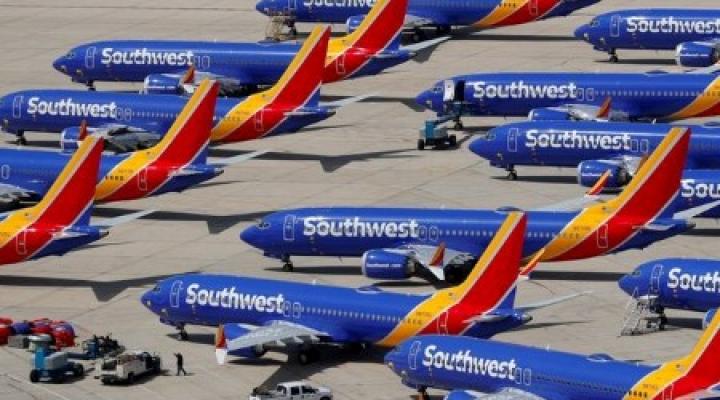Southwest Airlines, a major player in the domestic U.S. aviation industry, has once again revised its forecast for aircraft deliveries from Boeing, signaling significant changes ahead for both companies. This latest adjustment, announced on Tuesday, underscores the challenges Boeing faces amid regulatory scrutiny and production issues, while also highlighting the broader repercussions for airlines navigating an uncertain landscape.
The Decision to Cut Forecast:
Southwest Airlines, known for its reliance on Boeing aircraft, has been compelled to reduce its expected deliveries from the aerospace giant. The revision comes amidst ongoing regulatory investigations into Boeing’s safety and quality standards following a midair panel blowout incident on January 5th, 2024. With safety concerns mounting, Southwest has adjusted its forecast, anticipating only 46 737-8 jets from Boeing in 2024, a significant decrease from the previous projection of 79 737 MAX jets.
Reasons Behind the Adjustment:
Boeing’s advisory to Southwest, suggesting a reduction in aircraft deliveries, stems from various factors. Primarily, the grounding of the 737 MAX 7, Southwest’s preferred model, due to regulatory restrictions on Boeing’s production processes, has contributed to the scaled-back forecast. Additionally, delays and challenges in obtaining certification for certain aircraft models have further compounded the situation, leading to a reassessment of delivery expectations.
Impact on Southwest and Boeing:
The revised forecast has immediate ramifications for both Southwest Airlines and Boeing. For Southwest, the reduced capacity resulting from fewer aircraft deliveries could potentially impact operational efficiency and route expansion plans. Furthermore, the uncertainty surrounding aircraft availability may necessitate strategic adjustments to fleet management and scheduling, posing logistical challenges for the airline.
On the other hand, Boeing faces intensified scrutiny and reputational damage amid ongoing safety concerns and production issues. The recent FAA audit revealing numerous problems in Boeing’s 737 MAX production processes adds to the company’s woes, further eroding confidence among customers and stakeholders. The ripple effects of these challenges extend beyond Southwest to the broader aviation industry, impacting supply chains, production timelines, and customer expectations.
Industry-wide Ramifications:
The implications of Southwest’s decision reverberate throughout the aviation sector, highlighting broader concerns regarding aircraft procurement and operational stability. With airlines grappling with slowed plane production and delivery delays, there is a growing sense of urgency to address underlying issues and restore confidence in the industry. Moreover, the prospect of increased competition from rival manufacturers such as Airbus underscores the need for Boeing to address its production challenges swiftly and decisively.
As Southwest Airlines and Boeing navigate these turbulent waters, the focus remains on addressing critical safety and operational concerns while mitigating the impact on customers and stakeholders. Transparent communication, proactive measures, and collaborative efforts will be essential in rebuilding trust and resilience within the aviation ecosystem. Ultimately, the path forward requires a concerted commitment to safety, reliability, and innovation to ensure a sustainable future for the industry.
Southwest Airlines’ decision to revise its Boeing delivery forecast underscores the complex dynamics shaping the aviation landscape. While challenges persist, proactive measures and strategic collaboration offer a pathway towards addressing current issues and charting a course for long-term success and stability.
